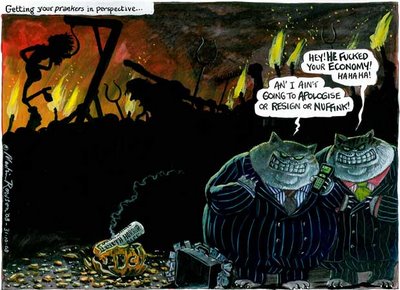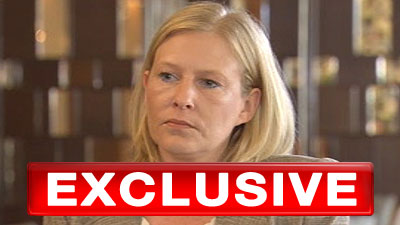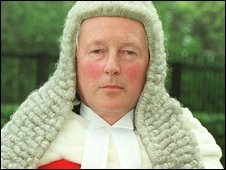Schadenfreude at the press standards, privacy and libel report.
I hope you'll excuse me then feeling such an emotion at the publishing last night of the culture, media and sport committee's report into press standards, privacy and libel, which includes a hefty section on the News of the World phone-hacking scandal. It's not often that parliamentary committees make such damning attacks on the media at large as this one does, nor ones which are so ferociously accurate. Anyone who had looked at the evidence given to the committee by Tom Crone, Colin Myler, Stuart Kuttner and Andy Coulson would have noted just how pathetically inadequate it was: here were 4 men who were either editing the News of the World, combing the copy to ensure that it wasn't either libellous or defamatory, or working on the executive side, and you could have been forgiven for imagining that they had never even entered the paper's offices, such was their apparent ignorance of what had been going on. The committee, to its credit, cut through the swathes of denials and described their evidence as filled with "deliberate obfuscation", while they also seemed to be suffering from "collective amnesia". In a court room they would have been derided by a judge as unreliable witnesses. We should remember after all that these are some of the people who pass judgement on other individuals for their transgressions and who have the power to ruin lives if they choose to do so. It really was about time that they were cut down to size in such a way.
More amusing still, if it wasn't so tragic, has been the response of News International, which has been to respond to the committee's accusations of "deliberate obfuscation" with err, "deliberate obfuscation", as discussed in more detail in this Sun Lies post. It's incredibly lame to continue to claim, as NI has, that both the committee and the Guardian have produced no new evidence of phone-hacking at the paper, which the report itself deals with in detail in paragraphs 492 and 493. Just as low has been to attack the committee system as a whole because of the tenacity with which the MPs have carried out their task, claiming that the entire thing was a stitch-up between the Guardian and the Labour MPs on the committee, out to get Andy Coulson as he's now the chief Tory spin doctor. NI has pounced on the one thing on which the committee didn't unanimously agree upon, which was to mention Coulson's bullying of Matt Driscoll, which the Tory MPs felt wasn't relevant and so divided on political lines on. If the committee was out to get Coulson, then they did a pretty poor job, deciding that he in fact didn't know about the phone hacking, something which is about as ridiculous as it gets. If he didn't know, then he wasn't the editor in any real sense, as someone at the paper was authorising the huge amounts which Glenn Mulcaire was being paid for his work. The only reasonable explanation for why he wouldn't have known was that he deliberately ensured that he didn't, in a ultimately futile attempt to be able to evade responsibility if the hacking was uncovered. The report nonetheless says that he was right to resign.
Most fascinating of all is what this tells you about possible collusion between the Metropolitan police and the Screws. Why was the eventual prosecution limited, despite the evidence of phone-hacking on such an industrial scale to just the interception of voicemail messages of members of the royal family? Was it because they were the easiest to prove, and Mulcaire going too far in targeting the very height of the British establishment, something that simply couldn't be countenanced, or that the Met didn't want to put its "special relationship" with the Murdoch press in peril? Clearly from the Guardian's subsequent freedom of information request we know that the investigations into the phone-hacking went far beyond just that which eventually reached court, and that some of the phone companies involved informed those whose voicemail was believed to have been intercepted. Why then was the Met so swift to dismiss the need for any further investigation or even a proper review of its original work when we now subsequently know that John Yates didn't provide the full picture either in his evidence to the committee or in his initial communications after the Guardian's allegations?
Likewise, the non-investigation by the Press Complaints Commission was as clear an example as you could possibly get of a regulator which was materially misled by the NotW covering itself through embarrassment rather than going after a media organisation which was breaking the law on such a grand scale. The only thing that can be said in its defence is that it's true that much of the media in this country, especially the tabloid side, was operating in a similar fashion at the time, whether through phone-hacking which the NotW excelled at or through the use of private detectives who blagged information from government databases, as exemplified by the Stephen Whittamore prosecution. It has been perhaps unfair to target just the NotW in such a way when the Daily Mail were the leaders in the use of blagged information, but they were smart enough to get someone outside the actual organisation to do their dirty work for them, while the NotW personally employed Mulcaire to perform the "dark arts".
This entire episode has shown up the media in this country for what it actually is, as if it really needed stating: loathsome hypocrites who preach from their pulpits even as they themselves break the law if necessary just to get information which can't even begin to be described as in the public interest, or indeed of any interest whatsoever. There's a huge difference between the methods say which the Guardian used to bring down Jonathan Aitken, which involved diving through dustbins and the interception of voicemail messages of the likes of Gordon Taylor and Max Clifford, either for unutterably lame "kiss and tells" or for personal advantage in the ever ongoing war of spin and counter-spin.
If there's one thing to be taken from this, it's that the committee itself believes that the media has since cleaned up its act, such was the shock of Goodman and Mulcaire being made scapegoats for an industry which was out of control. I am far more sceptical: newspapers, especially the tabloids, in such a cut-throat game and one which is only getting more desperate as circulations fall are only likely to resort to ever more underhand methods to make up the difference. The "dark arts" are now been even more covered up and forced deeper underground, and as the likes of News International remain unaccountable, as epitomised by their response to the committee's findings, nothing is likely to change, as enjoyable as it is to watch them squirm and react in such a way.
P.S.
The report as a whole is excellent, and it's well worth reflecting on its conclusions and recommendations, but that's for another day. What I will say is that the recommendations made for beefing up the Press Complaints Commission, enabling it to fine newspapers and even potentially stop them publishing for a day for the most serious breaches of the code, while welcome and probably the only way to make self-regulation work, are doomed to failure. The PCC itself rejects any such plans, and in any case, the media groups which fund it would never allow such penalties, which actually might make them think twice before repeating the type of coverage which occurred during the Madeleine McCann hysteria, from being implementable. I've been quoted as being involved in the petition calling for changes to the PCC's code, but while I was on the email discussion list, I made no contribution to the discussion and have not signed anything. This is for the simple reason that it's simply impossible to reform a cartel, which is what the PCC unquestionably is. The only way to deal with cartels is to abolish them. Self-regulation has had more than enough chances to work, and it has failed every single successive test.
Labels: abuses by tabloids, Andy Coulson, Clive Goodman, dark arts, Glenn Mulcaire, journalism, News International, News of the World, Nick Davies, Press Complaints Commission, Stephen Whittamore




